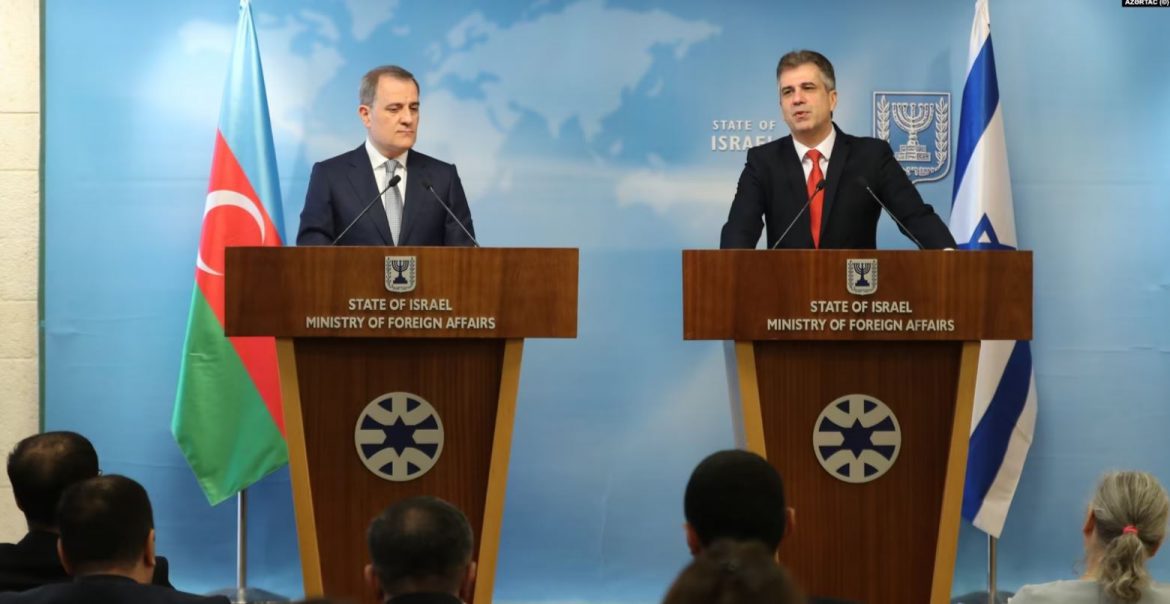Despite there being no tangible realpolitik or ideological motivations to do so, Pashinyan’s government opened an embassy in Israel just months before the 2020 Artsakh war. That diplomatic overture severely strained Armenia’s strategically important relationship with Iran, with no real expectation to gain anything in return from Israel, a key strategic ally of Azerbaijan and a country that to this day refuses to even acknowledge the Armenian Genocide.
In fact, the relationship between Armenia and Iran was strained so much by Pashinyan’s illogical move, that Iran, which until that point had remained mostly neutral on the Artsakh issue, publicly proclaimed its support for Azerbaijan’s territorial integrity during the 2020 war.
To add insult to injury, Israel was one of the primary supporters of Azerbaijan during the 2020 war. On Wednesday, Azerbaijani Foreign Minister Jeyhun Bayramov during his visit to Israel thanked the Jewish state for supporting Azerbaijan during the 2020 war with Armenia.
“We are grateful to Israel for supporting the position of Azerbaijan,” Bayramov was quoted as saying in Azerbaijani news agencies after discussions with his Israeli counterpart Eli Cohen. Bayramov claimed that Jews were among Azerbaijani soldiers killed during the six-week war to occupy Artsakh.
Israel has long been one of Azerbaijan’s main suppliers of weapons and other military hardware. Those supplies continued even after Azerbaijan launched a full-scale offensive in and around Artsakh on September 27, 2020.
In supposed protest, Armenia recalled its ambassador to Israel on October 1, 2020. According to the Armenian military, Azerbaijani forces heavily used Israeli-made attack drones and multiple-launch rocket systems throughout the war, which was stopped in November of 2020 by a ceasefire brokered by the Russians.
And despite the fact that military cooperation between Azerbaijan and Israel has not slowed down a bit since the Artsakh war in 2020, Pashinyan’s government sent a new ambassador to Israel in April of 2022.




